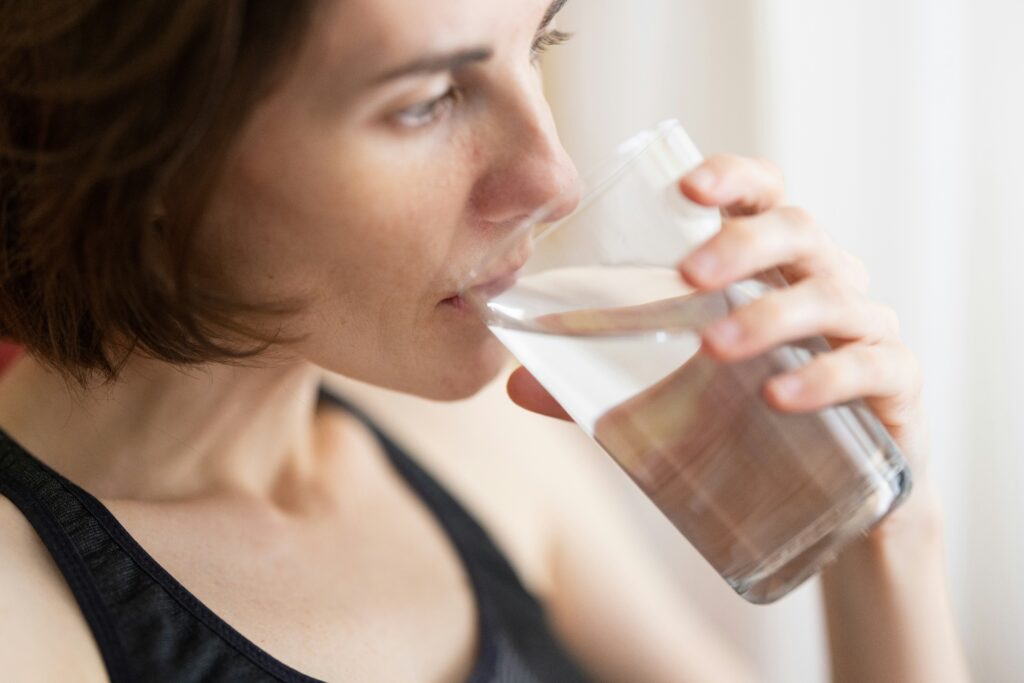Sore Throat After Drinking Alcohol: Causes, Treatment, & Prevention
You spent the evening with your friends toasting each other’s accomplishments and catching up on the latest. Perhaps you felt in control of your alcohol consumption and thought you handled it well. The good news is you didn’t even have a hangover, or at least didn’t think you drank that much. But as you roll out of bed the following morning, you realize your throat is sore and you have a painful side effect from your drinking.
What are you supposed to do if you get a sore throat from alcohol? Let’s take a look at why you get a sore throat after drinking, some of the most common symptoms, treatment options, and how to prevent it from happening again.
Why Does My Throat Hurt After Drinking?
Drinking alcohol, especially drinking too much, can cause a wide range of problems for your body. You can get a sore throat from alcohol since it causes water retention, weakens your immune system, and can lead to numerous serious diseases such as gastroesophageal reflux. There can be a lot of reasons you have a sore throat after drinking.
Common Reasons You Get a Sore Throat After Drinking
Vomiting
If alcohol gives you an upset stomach, throwing up can lead to a sore throat. Vomit contains stomach acid which can irritate your throat causing inflammation and soreness.
Drying Effect of Alcohol
Alcoholic beverages act as a diuretic, which means you may feel the need to urinate more often, which ultimately dehydrates your body. As your body becomes dehydrated, the protective mucus membranes in the throat dry out too, which causes friction, leading to a sore throat.
Grain Allergy
If you have an allergy to grains, you may develop asthma symptoms after drinking. Drinking grain alcohol tends to make allergic reactions worse. You could have a sore throat from alcohol, but it can get worse and lead to anaphylaxis. Be cautious if with your alcohol consumption if you have a known grain allergy.
Weakened Immune System

Alcohol causes your immune system to become weakened. When your immune system is compromised, you become more susceptible to viral, fungal, and bacterial infections, which can cause you to have a sore throat.
Inflammation
Consuming alcohol increases inflammation throughout the body, and the throat is no exception. You may get a scratchy, dry, and sore throat from alcohol consumption due to increased systemic inflammation.
Damaged Tissue
The acidic nature of alcohol can cause direct damage to the lining of the esophagus, mouth, and throat, which can in turn cause pain and discomfort in your throat.
How long will a sore throat from alcohol last?
For most people, a sore throat caused by alcohol should improve in just a few days. If you have a sore throat after drinking and it’s not better in 3 or 4 days, you should seek medical care.
Does the Type of Alcohol influence the severity of a sore throat?
Logically, it would make sense that stronger alcoholic content is more likely to cause throat irritation. The more alcohol that is consumed, the more likely you will experience symptoms of a hangover, including a sore throat.
Can I drink alcohol if I already have a sore throat from drinking?
If you develop a sore throat after drinking alcohol, it’s best to avoid consuming more alcohol until your throat is completely healed. Drinking more alcohol can exacerbate the irritation you are already experiencing.
How to Treat a Sore Throat from Alcohol
If you are suffering from a sore throat after drinking, there are several over-the-counter options as well as some home remedies that may help bring some relief. However, if the pain is severe, or if it becomes worse it’s best to talk to a healthcare professional to ensure the alcohol hasn’t caused more serious damage to your throat.
Here are a few things you can try if you experience a sore throat after drinking.
Re-Hydrate

Alcohol has a dehydrating effect, so drinking plenty of hydrating liquids can help offset the symptoms, including a sore throat. It’s easy to become dehydrated after consuming alcohol as it increases the need to urinate which can cause imbalances in your electrolytes. Getting proper hydration can help replenish electrolytes.
Take Over-the-Counter Medications for Pain
You probably have acetaminophen or ibuprofen on hand. Most people keep these common pain relievers in stock. They can be used to help relieve the pain associated with your sore throat, and if you have a hangover, they may be able to help curb a headache too.
Saltwater Rinse
Gargling with salt water has been a long-standing home remedy used to help soothe sore throats. Add ¼ to ½ a teaspoon of salt to 8 ounces of warm water. Sip the water and gargle it in the back of your throat for about 30 seconds. Repeat the process as needed for relief.
Drink Herbal Tea
Sipping warm herbal tea can help soothe an irritated throat. Green tea and ginger tea are examples of herbal teas that also have an anti-inflammatory effect that may help reduce irritation. Adding a little honey may also help bring some relief. Try to choose teas that do not contain caffeine, as it can have dehydrative effects.
Preventing Future Sore Throats from Alcohol Consumption
Obviously, the only way to be sure you avoid a sore throat after drinking is to avoid drinking at all. There are a few other ways to help prevent a sore throat after drinking. Try these tips to reduce your chances of having a hangover or a sore throat from alcohol.
Stay Hydrated
Stay hydrated by continuing to sip on water throughout the night. This helps keep your throat moist and also helps reduce the chances that you’ll become dehydrated.
Moderate Drinking
Moderation means managing how much alcohol you consume at one time. The CDC defines the limits as one drink for women and two drinks for men in one day. If you don’t feel like you can properly manage your alcoholic consumption, you may benefit from some external help to cut back on your drinking.
Ria Health offers a telehealth approach to help individuals cut back on drinking. At Ria Health, you can conveniently get the help you need. Through personal coaching sessions, support groups, expert medical counseling, and numerous other online tools, you can develop a much healthier relationship with alcohol. Contact Ria Health today to learn more about how we can help YOU! Schedule a free consultation with our medical team today!
Will insurance cover treatment? Verify Coverage
Have Questions? Call (800) 504-5360



